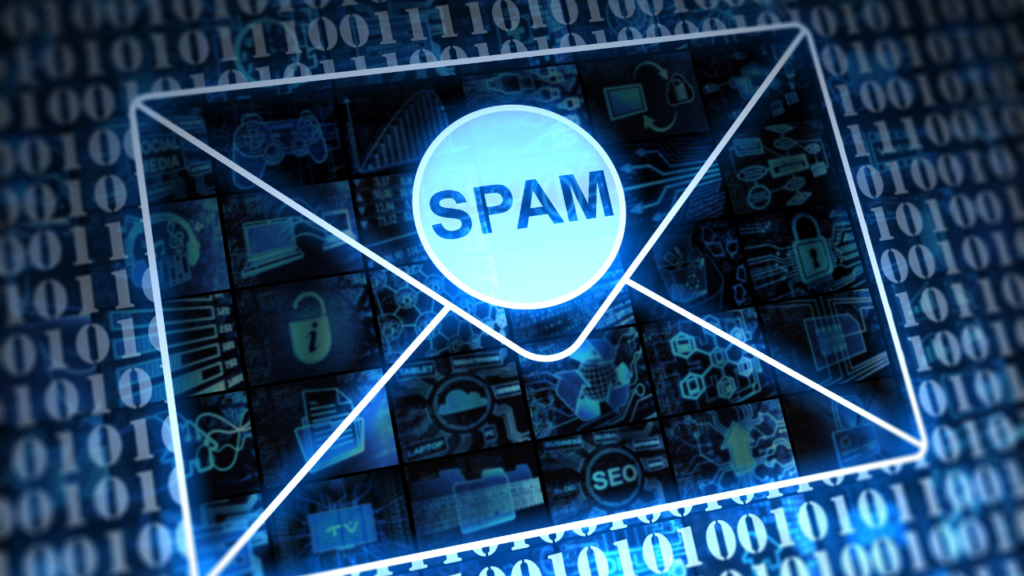Most marketers today are leveraging AI-powered tools to enhance their data-driven strategies and make more informed decisions. With the ability to analyze large volumes of data quickly and accurately, these tools enable you to uncover actionable insights that can optimize your campaigns. By integrating machine learning algorithms and predictive analytics, you can personalize your marketing efforts, increase customer engagement, and ultimately drive higher conversions. In this post, we will explore the variety of AI tools available and how you can effectively implement them into your marketing arsenal.
Key Takeaways:
- Personalization: AI-powered tools enhance customer experiences by delivering tailored content and recommendations based on individual preferences and behaviors.
- Analytics: Data-driven marketing benefits from AI’s ability to analyze large datasets quickly, providing insights that help optimize campaigns and strategies.
- Automation: These tools streamline marketing processes through automation, improving efficiency in tasks such as ad placement, customer segmentation, and reporting.
Understanding AI in Marketing
The integration of AI in marketing transforms how you gather insights, engage customers, and optimize campaigns. By leveraging machine learning and data analytics, AI empowers marketers to create personalized experiences and make informed decisions, ultimately driving better results and efficiency.
Definition and Overview
Around the world, AI in marketing refers to the use of algorithms and data analysis to automate tasks, gain insights, and enhance customer experiences. It allows you to efficiently process vast amounts of data and uncover patterns that inform your marketing strategies.
Benefits of AI for Marketers
Among the numerous advantages AI brings to marketing professionals, it significantly improves targeting, personalization, and campaign efficiency. It enables you to analyze customer behaviors, predict trends, and automate routine tasks, allowing you to focus on strategic planning and creative solutions.
The impact of AI on marketing is substantial. Enhanced targeting means your campaigns reach the right audience, while personalization ensures relevant content resonates with individual customers. Additionally, by automating repetitive tasks, you can save valuable time, improving efficiency and allowing you to dedicate more effort to creative strategies. These advantages position you to make data-driven decisions, leading to better campaign outcomes and increased return on investment.

Key AI-Powered Tools
Now, as you research into the world of AI-powered marketing tools, you’ll discover an array of innovative solutions designed to optimize your strategies. These tools not only help streamline your data handling but also enhance your decision-making processes, providing you with invaluable insights that can drive your marketing efforts forward.
Predictive Analytics
Around the landscape of digital marketing, predictive analytics has emerged as a game-changer. By leveraging historical data and advanced algorithms, these tools forecast future trends and customer behaviors, enabling you to anticipate market shifts and refine your campaign strategies effectively.
Customer Segmentation Tools
Below the surface of your marketing data lies the potential for more personalized outreach through customer segmentation tools. These solutions enable you to categorize your audience based on various factors, leading to targeted campaigns that resonate better with specific groups.
Even as you explore customer segmentation tools, it’s important to recognize their power in enhancing your marketing insights. They allow you to identify distinct audience segments, such as demographics, purchase history, and behavioral patterns, which can significantly improve your engagement rates. With targeted messaging, you can increase conversion rates while also fostering long-term customer loyalty. However, you should be cautious about over-segmentation, which can lead to inefficiencies and lost opportunities. Balancing specificity with a broader reach can enhance your marketing effectiveness.
Data Collection and Management
Unlike traditional marketing methods, modern data-driven marketing relies heavily on leveraging vast amounts of data to inform your strategies. To execute successful campaigns, you must prioritize effective data collection and management processes. This involves gathering relevant information about your audience, tracking interactions, and storing the data securely, ensuring that you have a comprehensive view of your customers and can make informed decisions based on their behaviors and preferences.
Data Sources and Integration
Between various platforms like social media, email marketing, and website analytics, your data comes from multiple sources. Integrating these datasets is crucial to create a unified view of your audience. By consolidating data, you can better analyze behavior patterns and engagement metrics, allowing you to tailor your marketing efforts effectively across different channels.
Ensuring Data Quality
Between the challenges of inconsistent data inputs and storage issues, maintaining high data quality is crucial for your marketing success. Without reliable data, your insights may lead to misguided strategies, negatively impacting your campaigns and customer relationships.
Hence, establishing a robust data quality management process is vital. This includes implementing data validation checks at the point of entry, regularly auditing your data for accuracy, and ensuring proper data cleansing methods are in place. By prioritizing data quality, you minimize the risks of erroneous insights, which can lead to ineffective marketing strategies and wasted resources. Striving for top-notch data will empower you to make informed decisions and enhance your audience’s experience.

AI in Content Creation
To harness the power of AI in your content creation efforts, you can leverage advanced algorithms that help generate engaging, relevant, and targeted content at scale. By automating aspects of content production, you free up valuable resources while ensuring your messaging remains consistent and effective. This not only enhances your workflow but also heightens your brand’s ability to connect with your audience more authentically.
Automated Content Generation
Around 75% of marketers agree that automated content generation helps them create articles, blog posts, and social media updates more efficiently. With tools powered by natural language processing, you can generate high-quality, SEO-optimized content tailored to your specific niche. This technology not only saves time but also allows you to focus on strategy instead of getting bogged down in the writing process.
Personalization and Recommendations
Among the significant benefits of AI in marketing is its ability to provide personalized content recommendations that resonate with individual users. By analyzing your audience’s behaviors and preferences, AI algorithms can suggest tailored content that enhances engagement and drives conversions.
The adaptability of AI allows you to deliver highly personalized experiences for each visitor to your site. By utilizing data-driven insights, you can ensure that content recommendations align closely with your audience’s interests, increasing the likelihood of interactions and sales. Implementing these AI-powered personalization strategies can lead to higher customer satisfaction and solidify long-term loyalty, making your marketing efforts much more effective.
Performance Measurement and Optimization
Keep your marketing strategies agile and effective with AI-powered performance measurement tools. They help you analyze data and optimize campaigns by providing insights into customer behavior, engagement rates, and conversion metrics. By leveraging these tools, you can ensure your marketing efforts align with your business goals, leading to improved performance and return on investment.
Real-time Analytics
Analytics plays a vital role in shaping your marketing strategies. By utilizing real-time analytics, you gain immediate insights into how your campaigns are performing. This allows you to identify trends, customer preferences, and areas for improvement without delay. Being able to react promptly to data-driven insights will ensure your marketing decisions are always aligned with current consumer behaviors.
A/B Testing with AI
With the help of AI, A/B testing has reached an unprecedented level of sophistication. You can compare different variants of your marketing materials in real-time, allowing you to determine which approach resonates best with your audience. AI streamlines this process by automatically analyzing data and identifying the most effective elements, significantly reducing the time and effort required in traditional testing.
Understanding A/B testing with AI means leveraging intelligent algorithms that predict outcomes based on historical data, thus minimizing bias in your testing. By analyzing user interactions and preferences, AI can uncover insights that traditional A/B testing might miss, leading to more effective marketing strategies. This method not only enhances your decision-making but also accelerates the optimization process. However, be cautious of over-optimization; relying solely on AI predictions without human intuition could lead to potential missteps in creativity and brand voice. Balancing AI insights with your personal understanding of your audience is important for maximum impact.

Challenges and Ethical Considerations
Not all advancements in AI come without their share of challenges. As you navigate the landscape of AI-powered tools for data-driven marketing, it’s vital to be aware of issues related to data privacy, bias in AI models, and the implications these have on customer trust and brand integrity.
Data Privacy Concerns
Below the surface of data-driven marketing lies significant data privacy concerns. With increasing regulations like GDPR and CCPA, safeguarding your customers’ personal information is not just a legal obligation but also a vital aspect of maintaining their trust. You must ensure that your data collection practices comply with these laws while still effectively utilizing insights for marketing strategies.
Addressing Bias in AI Models
Beside data privacy issues, addressing bias in AI models is necessary for ethical marketing. These biases can lead to unintended discrimination or skewed predictions, which ultimately harms your brand’s reputation.
Consequently, taking proactive steps to identify and mitigate bias in your AI models can enhance the effectiveness of your campaigns. By implementing diverse training data and employing regular audits, you can ensure that your AI solutions remain fair and unbiased. This not only improves the accuracy of your marketing efforts but also fosters a sense of trust and accountability with your audience, enhancing your brand’s overall reputation and effectiveness in the marketplace.
Summing up
Taking this into account, leveraging AI-powered tools for data-driven marketing can significantly enhance your strategies and decision-making processes. By utilizing these advanced technologies, you can gain deeper insights into consumer behavior and trends, ultimately driving your marketing efforts to new heights. To explore more about specific AI tools available, check out this resource on 10 AI Market Research Tools & How To Use Them. Harnessing the power of AI will enable you to stay ahead in a competitive landscape.
FAQ
Q: What are AI-powered tools for data-driven marketing?
A: AI-powered tools for data-driven marketing are software applications that leverage artificial intelligence and machine learning algorithms to analyze large sets of data. These tools help marketers make informed decisions by providing insights into customer behavior, predicting trends, and automating various marketing tasks. They can improve campaign targeting, personalize content, optimize ad spend, and enhance overall marketing effectiveness.
Q: How can AI tools improve customer segmentation in marketing?
A: AI tools enhance customer segmentation by analyzing vast amounts of data to identify distinct groups within a customer base. By examining factors such as purchase history, browsing behavior, demographics, and interactions, these tools can develop more precise and actionable segments. This allows marketers to tailor their messaging and offers to meet the specific needs of each group, leading to more effective campaigns and improved customer engagement.
Q: What role does AI play in predicting marketing trends?
A: AI plays a significant role in predicting marketing trends by utilizing predictive analytics to sift through historical data and identify patterns. By applying machine learning techniques, these tools can forecast future customer behaviors, market shifts, or emerging trends based on current data. This enables marketers to adapt their strategies proactively, seize opportunities, and stay ahead of competitors.




